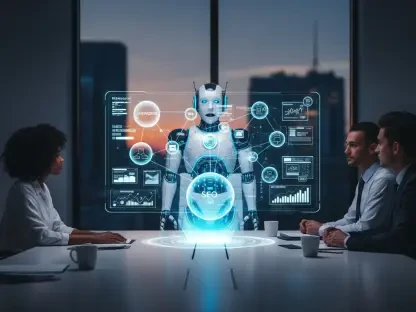I’m thrilled to sit down with Anastasia Braitsik, a global leader in SEO, content marketing, and data analytics. With her finger on the pulse of digital trends, Anastasia has helped countless creators and businesses transform their online presence into powerful revenue streams. Today, we’re diving into the world of influencer marketing, focusing on the game-changing potential of affiliate strategies and automation tools. We’ll explore how to build sustainable income as a creator, the magic of streamlining workflows with technology, and the importance of authenticity in connecting with an audience. Let’s get started!
How did your journey in digital marketing lead you to focus on influencer strategies and affiliate marketing?
My journey started with a deep dive into SEO and content marketing, where I saw firsthand how powerful online platforms could be for driving engagement and revenue. Over time, I noticed influencers struggling to monetize their audiences effectively, often relying on inconsistent brand deals. That’s when I began exploring affiliate marketing as a more sustainable model. It fascinated me because it aligns so well with authenticity—promoting products you genuinely believe in while earning a commission. I’ve since dedicated myself to helping creators build systems around this, using data to maximize their impact.
What do you see as the biggest hurdle for new influencers trying to break into affiliate marketing, and how can they overcome it?
The biggest hurdle is often mindset. Many new influencers think affiliate marketing is just about slapping a link in their bio and waiting for the money to roll in. It’s not that simple. You need a strategy—consistent content, clear calls to action, and an understanding of your audience’s needs. My advice is to start small, test different platforms, and track what works. Focus on products that resonate with your niche and build trust by being transparent about your recommendations. Over time, the results will compound.
Can you share your thoughts on how automation tools have changed the game for content creators in managing their affiliate efforts?
Automation tools are a game-changer because they eliminate so much of the manual grind. For instance, tools that automate responses to audience interactions—like sending affiliate links via direct messages—save creators hours of repetitive work. This lets them focus on what they do best: creating content. I’ve seen creators scale their revenue significantly by setting up simple workflows that guide followers from interest to purchase seamlessly. It’s not just about efficiency; it’s about creating a smoother experience for the audience, which builds loyalty.
How do you strike a balance between using automation and maintaining a personal connection with an audience?
It’s all about tone and intent. Automation doesn’t mean robotic. You can customize messages to sound like you’re speaking directly to someone—use casual language, add a personal sign-off, or include little details that reflect your personality. I always tell creators to think of automation as a tool to handle logistics, not relationships. You still need to engage manually in comments, reply to stories, and show up authentically. When done right, automation supports connection rather than replacing it.
What’s one piece of advice you’d give to a creator who’s hesitant to adopt automation tools out of fear they’ll lose their unique voice?
Don’t let fear hold you back from tools that can amplify your reach. Your unique voice isn’t in the mechanics of sending a link—it’s in your content, your story, and how you show up for your community. Automation just takes care of the repetitive stuff so you have more time to be creative. Start with something small, like automating a welcome message for new followers, and tweak it until it feels like you. You’ll quickly see that these tools can actually help you connect with more people without losing who you are.
How important is data in shaping an influencer’s affiliate marketing strategy, and what metrics should they prioritize?
Data is everything. Without it, you’re just guessing. I always encourage influencers to track metrics like click-through rates, conversion rates, and engagement on posts with affiliate links. These numbers tell you what’s resonating with your audience and where there’s room to improve. For example, if you notice high engagement but low clicks, your call to action might need work. Reviewing this data regularly helps you refine your content and maximize your earnings. It’s not just about making money—it’s about understanding your impact.
Can you tell us about a time when you saw a creator transform their business through affiliate marketing and automation, and what made their approach stand out?
I worked with a lifestyle creator who was struggling to monetize despite a decent following. She was stuck chasing brand deals that paid inconsistently. We shifted her focus to affiliate marketing, setting up a system where she promoted everyday products she loved through her content. Then, we integrated an automation tool to deliver links instantly when followers expressed interest. What stood out was her commitment to consistency—she used the same cues and workflows on every post. Within a few months, she generated a steady income stream and felt more in control of her business. Her authenticity and discipline made all the difference.
What’s your forecast for the future of affiliate marketing and automation in the influencer space?
I see affiliate marketing and automation becoming even more central to the influencer economy. As platforms evolve, we’ll likely see tighter integration of affiliate tools directly into social media apps, making it easier for creators to monetize without jumping through hoops. Automation will get smarter too, with AI helping to personalize interactions at scale. My forecast is that creators who embrace these tools early and focus on building trust with their audience will dominate. The future is about systems—those who adapt to streamlined, data-driven approaches will thrive while maintaining genuine connections.









